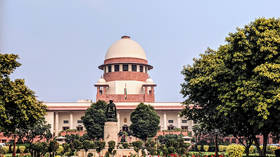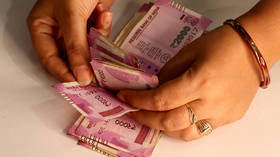India’s top court orders bank to disclose details of political donations

The Indian Supreme Court on Monday asked the State Bank of India (SBI) to divulge all details relating to a controversial electoral bonds scheme that was scrapped last month. The court order comes weeks before general elections begin in the world’s largest democracy.
A five-judge bench headed by Indian Chief Justice Chandrachud has given SBI a deadline of March 21 to provide details on bonds purchased by donors in favor of political parties – including the alphanumeric number and serial number of the bonds that can be used to match donations and their beneficiaries. “‘We had asked all details to be disclosed by the SBI which includes electoral bond numbers as well. Let SBI not be selective in disclosure,” the court said, according to the Economic Times.
The SBI has already provided data in two separate categories: information about donors who purchased bonds, and details about recipients who cashed them. Once the codes are disclosed, it will become possible to link donors to recipients, revealing who gave money to which party.
The scheme introduced by Prime Minister Narendra Modi’s government in 2018 allowed companies and individuals to purchase bonds from the SBI and donate them to parties anonymously. At that time, the government maintained that it would help increase transparency of political financing in India. The Supreme Court scrapped the scheme in February, terming it “unconstitutional,” and directed SBI to share the identity details of those who had bought such bonds and to provide information about bonds redeemed by each political party with the Election Commission of India (ECI) by March 16.
Following this deadline, the commission last week made the information public. Data showed that the Modi-led Bharatiya Janata Party (BJP) received almost half of the bonds donated between 2018 and 2024, worth some 120 billion rupees ($1.4 billion), while Future Gaming and Hotel Services – a little-known company owned by a lottery baron from South India – cashed in a cumulative $165 million, the highest of any entity.
A day later, the Supreme Court criticized the state-owned bank for not disclosing details to the ECI, and served a notice to the SBI instructing it to clarify the reasons for its non-disclosure of the alphanumeric identifiers.
The development comes days ahead of India’s 18th general election, in which over 970 million voters will elect 543 members to the Lok Sabha, or lower house of parliament. The ECI is overseeing the nationwide vote, which will be carried out in seven phases from April to June this year. The counting of votes will begin on June 4, with results set to be declared the same day.
Where India Meets Russia – We are now on WhatsApp! Follow and share RT India in English and in Hindi













